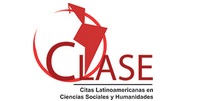De lo comunitario a lo escolar: elementos para el debate sobre la escuela comunitaria indígena/Community and School. Elements for the Debate on the Indigenous Community School
DOI:
https://doi.org/10.32870/dse.v0i13.234Palavras-chave:
educación indígena, interculturalidad, participación de la comunidad, conocimientos, justiciaResumo
Resumen: Este trabajo aborda la experiencia de las Escuelas Secundarias Comunitarias Indígenas de Oaxaca, enfocándose en las relaciones que en la práctica pedagógica cotidiana se articulan entre conocimientos y prácticas comunitarias y escolares. Aunque apuntalado por las estructuras educativas oficiales, el modelo surge como alternativa pedagógica inserta en el movimiento oaxaqueño por la educación comunitaria y se fundamenta en la propuesta filosófica y etnopolítica de la comunalidad. A partir de un estudio etnográfico de larga duración realizado en una de las diez secundarias comunitarias, en el contexto de una comunidad zapoteca de la Sierra Norte de Oaxaca, este artículo reflexiona sobre algunas de las contribuciones, las problemáticas y los límites de proyectos que pretenden construir procesos educativos basados en el derecho de los pueblos originarios a la participación en la creación de sistemas educativos acordes a sus intereses culturales, lingüísticos y étnicos.
Las Secundarias Comunitarias aportan a ello desde procesos participativos, dialógicos y reivindicativos, en aras de una mayor justicia curricular, social y cognitiva, en un contexto marcado históricamente por desigualdades, discriminación y exclusión social. El modelo, en su intento de trascender las prácticas escolares asimilacionistas e integracionistas que han marcado la educación indígena en México, enfrenta tensiones que abarcan desde la construcción de procesos epistémicos plurales y la tendencia a la reificación y esencialización de lo cultural e identitario, hasta la reflexión acerca de la hibridación cultural, la apropiación de lo “ajeno” y la resignificación de lo “propio”. En la práctica cotidiana cobran importancia las articulaciones y resignificaciones de las formas pedagógicas, escolares y comunitarias, además de la flexibilización de los espacios y tiempos del aprendizaje. Ante este panorama complejo, el modelo acierta en apostar por pedagogías más flexibles, dialogadas y co-ejercidas. Palabras clave: educación indígena, interculturalidad, participación de la comunidad, conocimientos, justicia.
Abstract: This article analyzes the experience of the Indigenous Community Secondary Schools of Oaxaca, Mexico, focusing on how alternative knowledge articulates with community and scholastic practices in everyday pedagogic activity. Although backed by official education agencies, the model emerged as a pedagogical alternative within Oaxaca’s movement for a community education based on the philosophical and ethnopolitical proposal of the community. Based on a lengthy ethnographic study conducted in one of the 10 Indigenous Community Secondary Schools in a Zapoteco town in the northern sierra of Oaxaca, this article evaluates some of the contributions, problematics, and limits of the projects which aim to build educational processes based on the right of native peoples to participate in the creation of educational systems that respond to their cultural, linguistic, and ethnic interests.
The Community Indigenous Secondary Schools approach this goal through participation, dialogue, and cultural reclamation processes that seek to achieve greater curricular, social, and cognitive justice in a context of historical inequality, discrimination, and social exclusion. In its attempt to go beyond the integrationist and assimilationist educational practices that have characterized indigenous education in Mexico, the model faces numerous tensions, including those between the construction of alternative epistemes and the reification or essentialization of identity and culture, between the appropriation of what is “foreign” and the resignification of what is “ours,” and those involved in the reflection on cultural hybridization. The articulations and resignifications of pedagogical, academic, and community forms become key in daily practice, as well as the flexibilization of learning spaces and times. Within this panorama, the model is successful in its search for more flexible, collaborative, and dialogic pedagogies. Key words: Indigenous education, interculturality, community participation, knowledges, justice.
Downloads
Downloads
Publicado
Edição
Seção
Licença
Esta obra está bajo una licencia internacional Creative Commons Atribución-NoComercial 4.0.
Una vez que los manuscritos son aceptados por los evaluadores para ser publicados, los autores deberán de suscribir una carta de cesión de derechos en favor de la Universidad de Guadalajara para la edición, publicación y difusión de su obra. Ya que sea notificada la publicación de su manuscrito, el editor de la revista le enviará un correo electrónico con el formato de la carta de cesión de derechos.















